Climate Resources
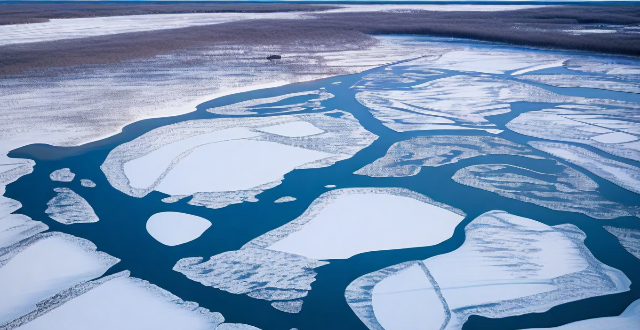
How is climate change affecting global water resources ?
The impacts of climate change on global water resources include reduced availability due to melting snowpack and glaciers, more frequent droughts and floods, saltwater intrusion into coastal aquifers, and changes in runoff patterns. Water quality is also affected by warmer water temperatures leading to harmful algal blooms, acid rain from increased carbon dioxide levels, pollutant transport from heavy rainfall events, and eutrophication from nutrient loading. The distribution of water resources is impacted by increased water stress in arid regions, migration and displacement of people seeking reliable water sources, strain on infrastructure from extreme weather events, and disruption of aquatic ecosystems due to altered flow regimes. Addressing these challenges requires both mitigation efforts to reduce greenhouse gas emissions and adaptation measures to build resilience against the impacts of climate change on water resources.

How can we ensure equitable access to climate adaptation resources within communities ?
The article discusses strategies for ensuring equitable access to climate adaptation resources within communities. It emphasizes the importance of community participation, transparent planning processes, fair allocation of resources, diverse funding mechanisms, and monitoring and evaluation. The goal is to build resilient and sustainable communities that can cope with the impacts of climate change.

How can climate services be used to manage water resources effectively ?
Climate services play a critical role in water resources management by providing accurate and timely information on weather patterns, climate change, and related phenomena. These services can be used to forecast precipitation, monitor river levels for flood early warning systems, assess the impact of climate change on water availability, plan adaptation measures, monitor drought conditions, manage water quality, and protect ecosystems. By leveraging these services, we can ensure the effective use of water resources, adapt to changing climates, prepare for extreme weather events, and guarantee a sustainable water supply for future generations.

What is the relationship between social inequality and access to resources for climate adaptation ?
The relationship between social inequality and access to resources for climate adaptation is influenced by economic, social, and political factors. Wealthier individuals often have more resources, while marginalized groups may face discrimination. Education plays a crucial role in raising awareness about climate change, and cultural beliefs can impact adaptation strategies. Government policies can either exacerbate or mitigate social inequality, and participatory decision-making processes are essential for equitable resource allocation. Addressing social inequality requires equitable resource allocation, capacity building, community-driven approaches, and targeted interventions for vulnerable populations.

What resources are available for teachers who want to incorporate climate education into their lessons ?
There are many resources available to help teachers incorporate climate education into their lessons, including online courses and training programs, curriculum materials and lesson plans, books and articles, videos and multimedia resources, and professional development opportunities. These resources provide teachers with the knowledge and skills needed to effectively teach about climate change, as well as engaging and informative materials for students. By utilizing these resources, teachers can help students understand the importance of climate change and its impacts on society and the environment.

What resources are available for educators looking to incorporate climate change into their lesson plans ?
The text provides a summary of resources for educators to incorporate climate change into lesson plans, including online resources, books and textbooks, videos and films, and interactive tools and simulations. The resources are organized into four categories: online resources such as NASA Climate Kids and National Geographic Education; books and textbooks like "The Sixth Extinction" and "Climate Change: A Multidisciplinary Approach"; videos and films such as "Before the Flood" and "Chasing Ice"; and interactive tools and simulations like C-Learn and Climate Interactive. These resources can be used to create engaging lesson plans that cover various aspects of climate change science, social impact, and solutions.

How does climate change influence the distribution of fishing resources and the livelihoods of fishing communities ?
Climate change affects fishing resources and livelihoods by altering water temperature, ocean acidity, precipitation patterns, sea level, and causing economic impacts on fishing communities.

How does climate change exacerbate gender inequality in access to resources and decision-making ?
Climate change exacerbates gender inequality by disproportionately affecting women and girls in access to resources and decision-making. Women often have limited access to resources such as water, food, and land due to cultural norms, lack of education, and poverty. They also have limited participation in decision-making processes due to cultural norms and lack of education. To address these issues, it is important to prioritize gender equality in climate change adaptation and mitigation strategies by ensuring that women's voices and experiences are taken into account when making decisions.
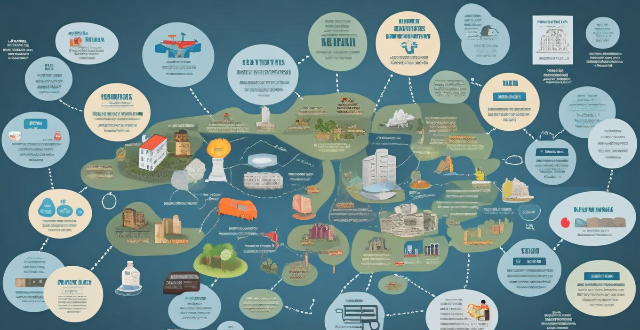
How do climate policies vary between developed and developing countries ?
This article compares the climate policies of developed and developing countries, highlighting differences in economic resources, technological capabilities, and political priorities. Developed countries have larger economies and more financial resources to invest in climate change initiatives, while developing countries face challenges due to limited financial resources. Technological capabilities also differ significantly, with developed countries possessing advanced technologies for renewable energy and emission reduction strategies, while developing countries lack such infrastructure. Political priorities also vary, with developed countries often prioritizing climate action, while developing countries may prioritize other pressing issues. The article concludes that international cooperation and support mechanisms are crucial for bridging these gaps and fostering a global response to climate change that is both equitable and effective.
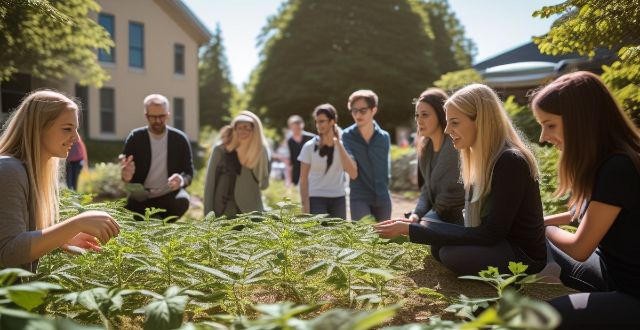
How does climate change impact the social and economic development of countries hosting climate refugees ?
Climate change leads to displacement of people, creating challenges for hosting countries in social and economic development. Social impacts include increased population, cultural conflicts, security concerns, and integration challenges. Economic impacts involve strained resources, unemployment issues, depletion of natural resources, and financial burden. Addressing these challenges requires coordinated efforts from various stakeholders.
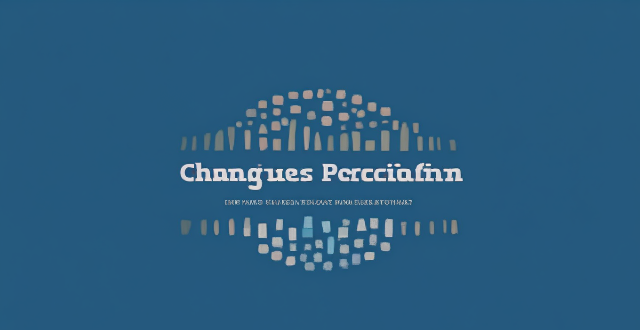
How do changing precipitation patterns influence water resources management ?
The text discusses the impact of changing precipitation patterns on water resources management, which involves the regulation and allocation of water for various uses like drinking, irrigation, industrial processes, and ecosystem maintenance. The key points include precipitation variability, water resources management, and climate change impacts. The changing precipitation patterns can lead to unpredictability in water availability, infrastructure stress, agricultural water needs, ecosystem health, urban water use, and policy and legislation changes. To cope with these impacts, mitigation measures such as reducing greenhouse gas emissions, rainwater harvesting, and water conservation practices can be implemented. Adaptation measures include flexible water allocation systems, infrastructure upgrading, integrated water resources management, and ecosystem restoration. The conclusion emphasizes the need for proactive planning, investment in resilient infrastructure, and the adoption of innovative practices that promote sustainability and flexibility in the face of an uncertain future.
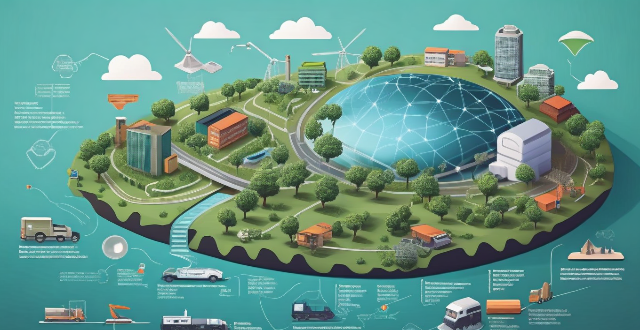
What are the benefits of international climate cooperation ?
International climate cooperation is crucial for mitigating global warming, adapting to climate change, protecting biodiversity, creating economic opportunities, enhancing global security, and promoting social justice. By working together, countries can reduce greenhouse gas emissions, develop clean energy technologies, share resources and knowledge, strengthen infrastructure, conserve ecosystems, prevent extinction, grow a green economy, create jobs, manage resources more effectively, improve public health, address climate injustice, and ensure equitable access to sustainable technologies. This collective effort is essential for preserving our planet's delicate ecosystems and ensuring a sustainable future for all.

What are the ethical implications of climate loss and damage ?
The ethical implications of climate loss and damage are multifaceted, involving issues of justice, responsibility, human rights, and intergenerational equity. Those who have contributed the least to climate change are often disproportionately affected by its consequences, raising questions about fairness and justice. Responsibility and accountability for addressing these impacts are also crucial, with industrialized nations having historically emitted more greenhouse gases and generally having more resources to invest in climate action than poorer ones. Climate loss and damage pose serious threats to human rights, including the right to life, health, food, water, and housing. Intergenerational equity is also a significant consideration, as current generations must not deprive future generations of the ability to meet their own needs by depleting natural resources and altering the climate system. Addressing these challenges requires global cooperation and a commitment to creating a more equitable and sustainable world for all current and future inhabitants of our planet.
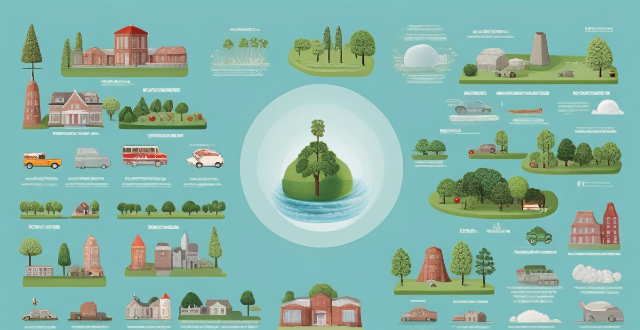
How does climate change influence resource competition and its impact on international relations ?
Climate change is significantly impacting resource competition and international relations by altering the availability and distribution of natural resources like water, food, and energy. This results in increased competition among nations for these resources, affecting economic systems, political structures, and global stability. Water scarcity due to changing precipitation patterns is causing conflicts, especially in regions sharing rivers or aquifers. Changes in temperature and rainfall patterns are affecting food production, leading to increased import dependency and potential conflicts over limited resources. Energy resource competition is shifting towards renewables due to climate change impacts on fossil fuels. Countries are engaging in mitigation and adaptation efforts through international agreements, technology transfer, and disaster risk reduction. While climate change presents challenges, it also offers opportunities for global cooperation in addressing this common threat.
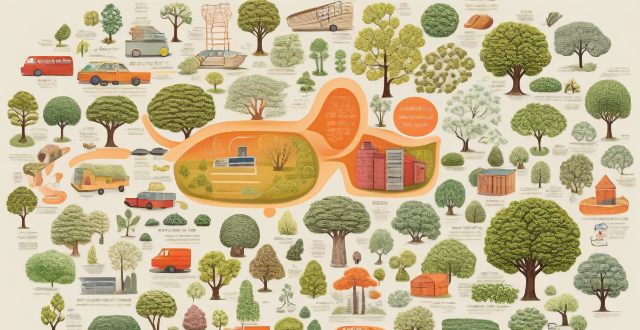
Is it ethical for developed countries to consume more resources than developing ones ?
The question of whether developed countries should consume more resources than developing ones is complex, involving considerations of equity, environmental stewardship, economic implications, and social-political dynamics. Ethical concerns include fair distribution of resources and meeting basic needs in developing nations, as well as the responsibility to reduce ecological footprints and mitigate global climate change. Practical considerations involve economic growth, infrastructure needs, national sovereignty, and compliance with international agreements. While ethical arguments exist against overconsumption by developed countries, economic realities and political factors complicate the issue. Many developed nations are adopting sustainable practices, and international cooperation is essential for equitable resource management and conservation. Striking a balance between current needs and future preservation is a universal challenge.

What role do governments play in addressing climate loss and damage ?
Governments play a critical role in addressing climate loss and damage through legislation and policy making, research and development, education and awareness, and international cooperation. They can enact laws that regulate emissions and protect natural resources, develop policies that encourage sustainable practices, fund research into new technologies for reducing greenhouse gas emissions, launch public education campaigns to raise awareness about climate change, and work together through international agreements and collaborative projects to share knowledge and resources. By taking these actions, governments can help mitigate the effects of climate change and protect our planet for future generations.

What is the future of space tourism and its implications on Earth's resources ?
The development of space tourism by private companies like SpaceX, Blue Origin, and Virgin Galactic may make it more accessible to the public in the future. However, it raises concerns about its environmental impact, economic considerations, ethical concerns, and long-term sustainability. It is crucial to consider these implications to ensure responsible use of Earth's resources while exploring space tourism.

What are the best practices for managing water resources in agriculture ?
Proper management of water resources is crucial for sustainable agriculture, and there are several best practices that can help farmers conserve and use water efficiently. These include soil moisture monitoring, drip irrigation, mulching, rainwater harvesting, crop rotation and intercropping, efficient irrigation scheduling, integrated pest management, water-saving plants, and maintenance of irrigation systems. By following these practices, farmers can effectively manage their water resources while maintaining productivity and profitability in their agricultural operations.
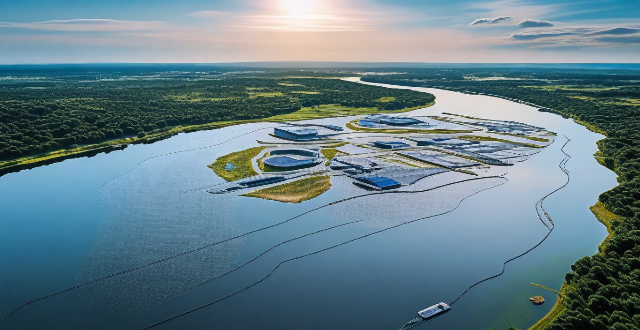
How does climate change affect water resources and availability ?
Climate change affects water resources and availability through melting glaciers, changes in precipitation patterns, sea level rise, increased evaporation rates, and impacts on ecosystems. These impacts can lead to water scarcity, flooding, contamination of freshwater sources, and declines in biodiversity. To mitigate these effects, it is important to reduce greenhouse gas emissions and implement adaptation strategies such as improved water management and conservation measures.

What are the potential economic benefits of mining resources on other planets ?
The article discusses the potential economic benefits of mining resources on other planets, including increased availability of resources, creation of new jobs, advancements in technology, stimulation of economic growth, diversification of energy sources, and expansion of human habitat.
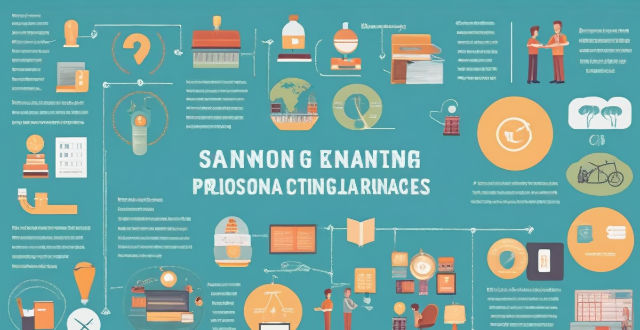
How can I find reliable online learning resources for my subject ?
When searching for online learning resources, it'sWhen searching for online learning resources, it's learning goals and then priorit it's crucial to first identify your learning goals and then prioritize credible sources like academic institutions and professional organizations. Evaluate content quality by checking author credentials and ensuring the information is up-to-date. Utilize reputable online learning platforms and join online communities for recommendations. Look for accredited courses and take advantage of trial periods to assess course quality before committing financially.

What resources are available to help women learn about wealth management ?
The text provides a summary of resources available to help women learn about wealth management. It mentions online courses and webinars, books, podcasts, and financial planners and advisors as some of the resources that can be used by women to gain knowledge and skills in wealth management. The resources are aimed at helping women take control of their finances and secure their financial future.

How can teachers effectively integrate multimedia resources into their innovative teaching methods ?
Integrating multimedia resources into teaching methods can greatly enhance the learning experience for students. Teachers should identify learning objectives, choose appropriate tools, create interactive lessons, encourage student participation, integrate technology in assessments, provide access to online resources, and continuously evaluate and update their methods. This approach ensures that teaching remains innovative and engaging for students.

Are there any good online learning resources for language learning ?
Good online learning resources for language learning include Duolingo, Memrise, Rosetta Stone, Babbel, and Busuu. Each platform has its unique features and strengths, such as interactive lessons, memory techniques, immersive experiences, conversational focus, and community support. These resources can help learners achieve fluency in their target language by providing engaging and effective ways to learn vocabulary, grammar, pronunciation, and cultural insights.

What resources are available online for studying history ?
This article provides a comprehensive list of online resources for studying history, including digital libraries and archives, online courses and lectures, encyclopedias and dictionaries, virtual museums and exhibits, and forums and discussion groups. The resources offer access to historical documents, photographs, lectures, articles, artifacts, and discussions with fellow enthusiasts. The article emphasizes the importance of utilizing these resources to gain a deeper understanding of historical events and periods.
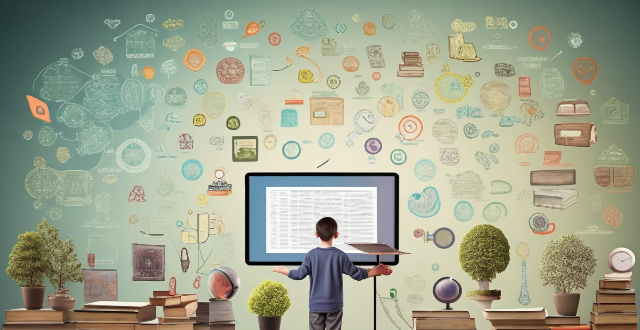
Which digital resources are most helpful for remote learning ?
Remote learning has become increasingly popular due to the COVID-19 pandemic. With the help of digital resources, students can continue their education from home. Here are some of the most helpful digital resources for remote learning: Online Learning Platforms, Video Conferencing Tools, Virtual Whiteboards, Online Libraries, Interactive Learning Tools, and Communication Tools. These resources provide students with access to high-quality educational content, interactive features, and collaborative tools that enhance the learning experience. By utilizing these resources, students can continue their education from home while staying engaged and motivated.
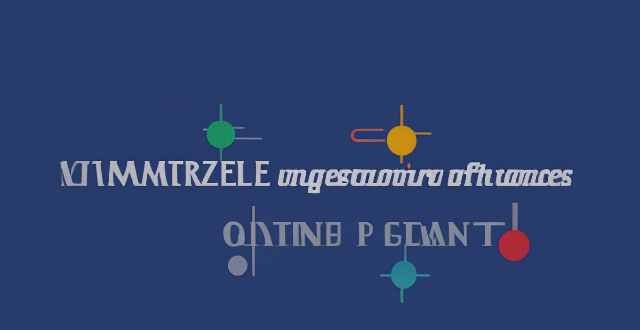
What are some reliable online learning resources for coding and programming ?
The text summarizes reliable online learning resources for coding and programming, including Coursera, edX, Udemy, Codecademy, Khan Academy, Pluralsight, LeetCode, and HackerRank. Each resource provides video lectures, interactive exercises, quizzes, assignments, and assessments to help learners improve their coding and programming skills. Some of the highlights of these resources include collaboration with prestigious universities, free access to most courses, personalized learning plans, and integration with popular development tools.

What resources are available for career planning and development ?
This text provides an overview of various resources available to support career planning and development. It covers online courses, networking opportunities, mentorship programs, job boards, personal development books and podcasts, coaching services, government and non-profit resources, university career services, company ERGs, and industry publications. These resources aim to enhance skills, expand networks, and keep individuals informed about opportunities that align with their career goals.
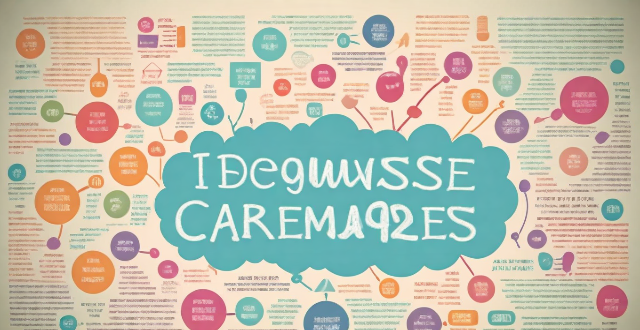
What are the best online resources for learning programming ?
The article discusses various online resources available for learning programming. It categorizes these resources into free tutorials, paid courses, and practice projects. The free tutorials include Codecademy, Coursera, edX, and Khan Academy, which offer interactive exercises, video tutorials, and quizzes to help learners practice their skills. Paid courses are offered by Udemy, Treehouse, Pluralsight, and Lynda/LinkedIn Learning, providing video tutorials, interactive exercises, and assessments. Practice projects can be found on GitHub, HackerRank, LeetCode, and Project Euler, where learners can work on real-world problems and improve their problem-solving skills. Overall, the article provides a comprehensive list of resources for those looking to learn programming online.

How can learners find the best e-books and educational resources online ?
Finding high-quality e-books and educational resources online can be a daunting task. Learners can use several strategies to find the best resources for their needs, including identifying learning goals, using reputable sources, checking reviews and ratings, joining online communities, and taking advantage of trial periods. By following these steps, learners can find high-quality resources that will help them achieve their learning objectives.